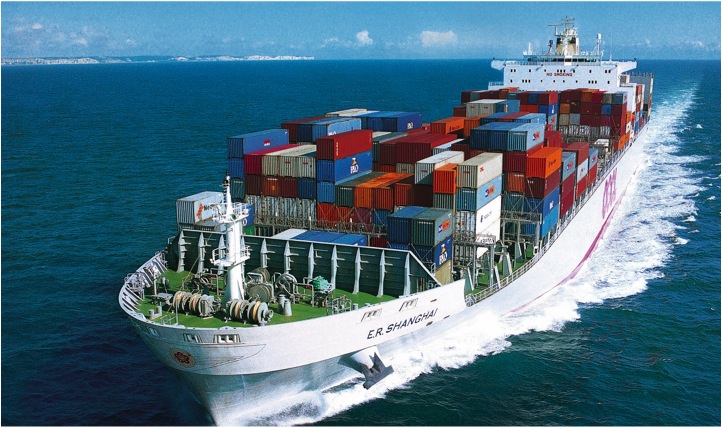Aage Krogh, IUNO Denmark
In a partial judgment concerning arbitration, the Danish Maritime and Commercial Court rejected a legal appeal against a freight forwarder affiliated with the contracting carrier, since the carrier was not legally bound by the agreement in relation to the consignee/buyer. In fact, he had only acted as an agent for the carrier. Thus, the case against the operating carrier could proceed in court despite the fact that the carrier had been given exclusive jurisdiction in Hong Kong. An agreement like this is invalid in accordance with the Merchant Shipping Act section 310.
A Danish clothing company purchased clothes from Vietnam, which was to be shipped to Denmark with a transit in Hong Kong. While in transport, the ship sank in the Indian Ocean, which subsequently led to all of the clothes being destroyed. The buyer then took legal action against three different parties:
-A Danish freight forwarder whom the buyer had been in personal contact with
-A Vietnamese freight forwarder who had received the task from the Danish freight forwarder, since he was an affiliate
-A Chinese carrier who had issued the bill of lading for the transportation
The court separately considered whether there was jurisdiction respectively in relation to the Vietnamese freight forwarder and in relation to the Chinese carrier. The court gave its view regarding this matter prior to reaching a decision.
The Buyer: Jurisdiction is to be Ruled in Accordance with the Merchant Shipping Act
The Chinese carrier had issued 11 bills of lading in which it was evident that the transported goods was to be delivered in Denmark and that the Chinese carrier in fact was “the Carrier”. Furthermore, it was evident that the Vietnamese freight forwarder was the “Agent for the Carrier” and that legal issues could only be brought forward in Hong Kong since there was exclusive jurisdiction in Hong Kong.
The buyer argued that the Vietnamese freight forwarder was an agent for the carrier since he was affiliated with the Danish freight forwarder and had received instructions regarding the shipment from the Danish freight forwarder.
Furthermore, the buyer argued that the Chinese carrier was an agent for the carrier since the bill of lading was issued in the name of the Chinese carrier.
As far as the jurisdiction clause is concerned it was the buyer’s opinion that the issue was to be solved in accordance with the Merchant Shipping Act section 310, since the Merchant Shipping Act regulated the situation. However, the Chinese carrier did not agree on this matter and argued that the situation concerned a multimodal transport which the Merchant Shipping Act does not concern.
The Danish Maritime and Commercial Court: The Vietnamese Freight Forwarder was the Agent – Not the Carrier
The Danish Maritime and Commercial Court rejected the legal appeal against the Vietnamese freight forwarder. The court ruled that the freight forwarder was an independent and legal entity based in Vietnam and acted both as the agent for the Danish freight forwarder and as the mediator for the Chinese carrier. The buyer had apparently never been in direct contact with the Vietnamese freight forwarder. Furthermore, he could not prove that the Vietnamese company had submitted a legal promise regarding the transportation. Thus, the Vietnamese freight forwarder was not a party to an agreement which could constitute a basis for jurisdiction in accordance with the Merchant Shipping Act.
The Chinese Carrier’s Clause Regarding Exclusive Jurisdiction in Hong Kong was Found Invalid
In the bills of lading the Chinese carrier showed as the “carrier”. Therefore, he was found to be the liable carrier regarding the maritime transport. Thus, there was jurisdiction in Denmark for the buyer to take legal action against the carrier in accordance with the Merchant Shipping Act. The Chinese carrier’s clause regarding exclusive jurisdiction in Hong Kong prevents proceedings in Denmark which is provided in the Merchant Shipping Act section 310 (1).
Hereafter the case against the Chinese carrier can be brought forward.
IUNO’s Opinion
The judgment illustrates that a company should always be regarded as an independent and legal entity despite that it is an affiliated company. This means that every agreement of affiliated companies should always be considered respectively.
For more information on claims against affiliated companies and jurisdiction, please refer to our previous newsletter.
Lastly, the judgment also illustrates that in relation to maritime transport it is necessary/important to be aware of the special rules regarding jurisdiction in accordance with the Merchant Shipping Act. In this case the Merchant Shipping Act section 310 (1) had an essential importance since preliminary agreements which limit the opportunity to take legal action in the country of delivery are considered to be invalid.

